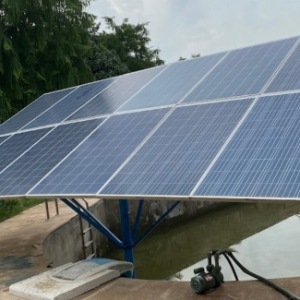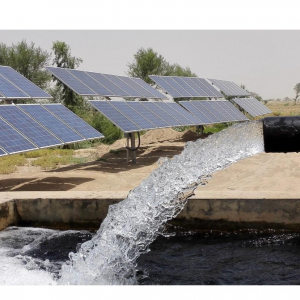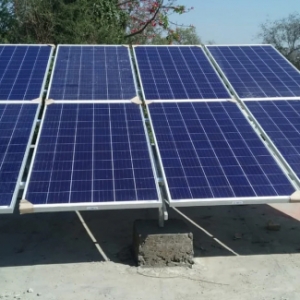Introduction
In a world increasingly conscious of environmental concerns and rising energy costs, solar power has emerged as a sustainable and cost-effective solution for homeowners. Choosing the right solar system for your home is a significant decision, as it can reduce your energy bills, increase your property value, and contribute to a greener planet. This guide aims to provide you with a comprehensive understanding of the factors to consider when selecting a solar system for your home.
Assess Your Energy Needs
The first step in choosing the right solar system is to assess your energy needs. You need to understand how much electricity your household consumes on average. This information will help you determine the size of the solar system required. You can find your electricity usage on your utility bills or use an online calculator to estimate it.
Solar System Types
There are primarily two types of solar systems to choose from: grid-tied and off-grid.
Grid-Tied Systems: Grid-tied solar systems are connected to your local utility grid. They are the most common choice for residential applications. Excess electricity generated by your solar panels is fed back into the grid, and you may receive credits for this surplus energy. This option is ideal if you want to offset your energy costs but still have access to power from the grid when your solar system isn't producing.
Off-Grid Systems: Off-grid solar systems are self-sustained and not connected to the grid. They store excess energy in batteries for use during nighttime or cloudy days. This option is suitable for remote areas with no access to the grid, but it typically requires a larger investment in batteries.
Solar Panel Types
There are various types of solar panels available, with the most common being monocrystalline, polycrystalline, and thin-film.
Monocrystalline: Monocrystalline panels are known for their high efficiency and sleek design. They are space-efficient and work well in limited spaces. While they tend to be more expensive, they offer excellent performance.
Polycrystalline: Polycrystalline panels are cost-effective and slightly less efficient than monocrystalline panels. They are a good choice for those looking for a balance between cost and performance.
Thin-Film: Thin-film panels are the least efficient but the most affordable. They are suitable for installations where space and budget are major constraints.
Solar Panel Efficiency
The efficiency of solar panels is a crucial factor. Higher efficiency panels generate more electricity per square foot, making them a better choice if you have limited roof space. Keep in mind that high-efficiency panels are more expensive, so you should find a balance between efficiency and budget.
Roof Orientation and Shade
The orientation of your roof and the amount of shade it receives can significantly impact the performance of your solar panels. Solar panels rooftop are most efficient when they face south and receive direct sunlight. If your roof is not oriented towards the south, you can use tracking systems to optimize panel orientation.
Shade from trees, neighboring buildings, or other obstructions can reduce the energy production of your solar system. Before installing solar panels, assess the shading on your property and consider tree trimming or removal if necessary.
Incentives and Rebates
Government incentives and rebates can help reduce the upfront cost of installing a solar system. These incentives vary by location and can include federal tax credits, state rebates, and local utility incentives. Research the available incentives in your area and factor them into your budget.
Budget Considerations
Determine your budget for a solar system. Remember that the initial cost includes the solar panels, installation, and any necessary additional equipment, such as inverters and batteries for off-grid systems. While solar systems can be a substantial investment, they typically pay for themselves through energy savings over time.
Solar System Components
In addition to solar panels, your system will require various components, including:
Inverters: Inverters convert the direct current (DC) generated by the solar panels into alternating current (AC) used in your home. There are string inverters and microinverters. String inverters are cost-effective but can be affected by shading. Microinverters are more efficient but can be pricier.
Mounting and Racking: Solar panels need to be securely mounted on your roof or on the ground. Proper mounting and racking are essential for the longevity and performance of your system.
Monitoring System: A monitoring system allows you to track the performance of your solar system and identify any issues promptly.
Battery Storage (if off-grid): If you opt for an off-grid system, you'll need battery storage to store excess energy for use when the sun isn't shining.
Choosing a Solar Installer
Selecting a reputable and experienced solar installer is crucial. Look for installers with certifications, such as NABCEP (North American Board of Certified Energy Practitioners), and read customer reviews to gauge their reliability and quality of service.
Warranties
Investigate the warranties offered for your solar system. Solar panels typically come with a 25-year performance warranty, while inverters may have warranties ranging from 5 to 25 years. Ensure you understand the terms and conditions of these warranties to protect your investment.
Maintenance
Solar panels require minimal maintenance, but it's essential to periodically clean them and check for any signs of damage. A well-maintained system will perform optimally and last longer.
Long-Term Benefits
While the upfront cost of a solar system may seem significant, it's essential to consider the long-term benefits. Solar systems can substantially reduce your electricity bills, increase your property value, and contribute to a more sustainable future by reducing your carbon footprint.
Choosing the right solar system for your home is a decision that involves various factors, including your energy needs, the type of system, the type of panels, your roof's orientation, and your budget. It's essential to do thorough research, consider all available incentives, and work with a reputable installer. In the long run, the right solar system can lead to significant energy savings and a positive impact on the environment, making it a wise investment for homeowners looking to embrace clean energy solutions.






